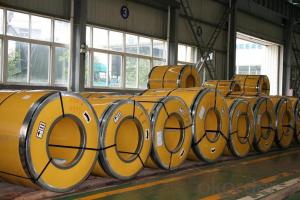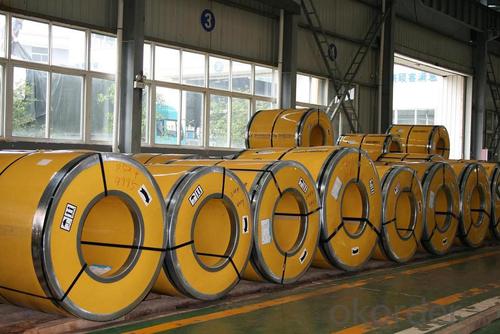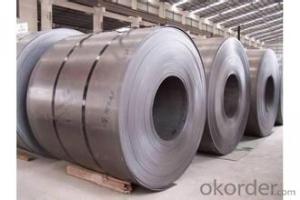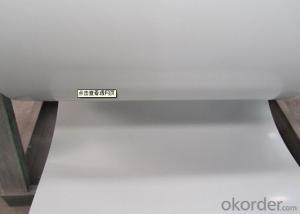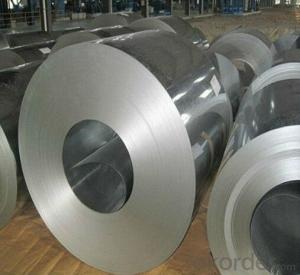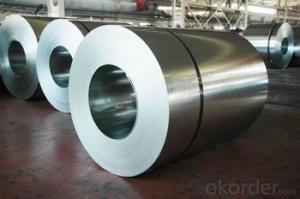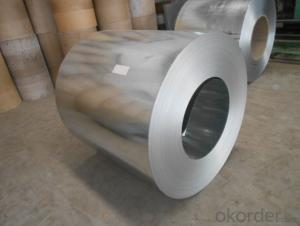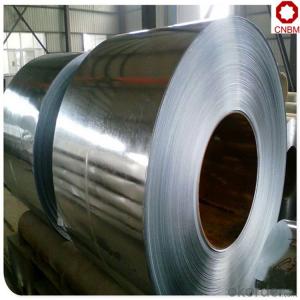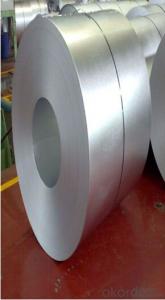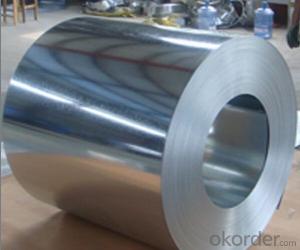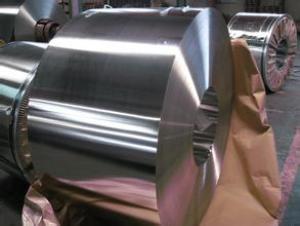Hot Dipped Galvanized Steel Sheets in Coils Based on Full Hard Quality
- Loading Port:
- Shanghai
- Payment Terms:
- TT OR LC
- Min Order Qty:
- 100 m.t.
- Supply Capability:
- 10000 m.t./month
OKorder Service Pledge
OKorder Financial Service
You Might Also Like
Hot Dipped Galvanized Steel Sheets in Coils Based on Full Hard Quality
1.Structure of Hot Dipped Galvanized Steel Sheets in Coils Based on Full Hard Quality
Hot Dipped Galvanized Steel Sheets in Coils Based on Full Hard Quality is one kinds of building material on construction. Galvanized coil, steel sheet in melting zinc trough, the sticking of a layer of zinc sheet. At present mainly adopts continuous galvanizing process, namely the continuous roll of steel plate in the melt zinc plating tank made of galvanized steel sheet; Alloying of galvanized steel. This kind of steel plate is made by hot dip method, but after the slot, immediately heated to a temperature of about 500 ℃, it make the generation of zinc and iron alloy membrane. This kind of galvanized volumes with good coating of the sex and weldability.
Color coated steel coil(ppgi) is made by the processes of chemical preconditioning, first coating, precision coating and so on through a continuous rapid unit internationally in recent three decades. Its quality is more uniform and stable than the one whose surface of the formed metal is coated single or brushed one.
2.Main Features of Hot Dipped Galvanized Steel Sheets in Coils Based on Full Hard Quality.
1) Rust-proof
2) Water-proof
3)Durable using
3. Hot Dipped Galvanized Steel Sheets in Coils Based on Full Hard Quality Images
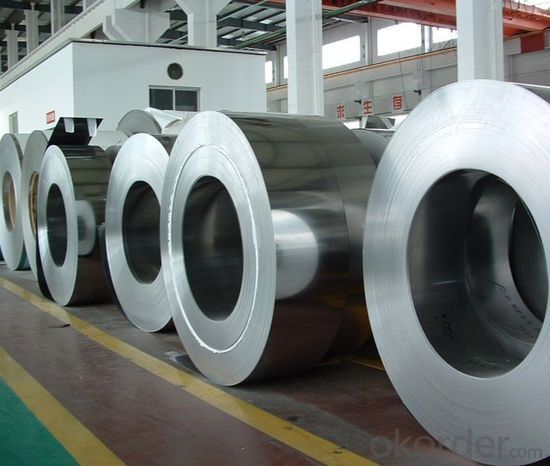
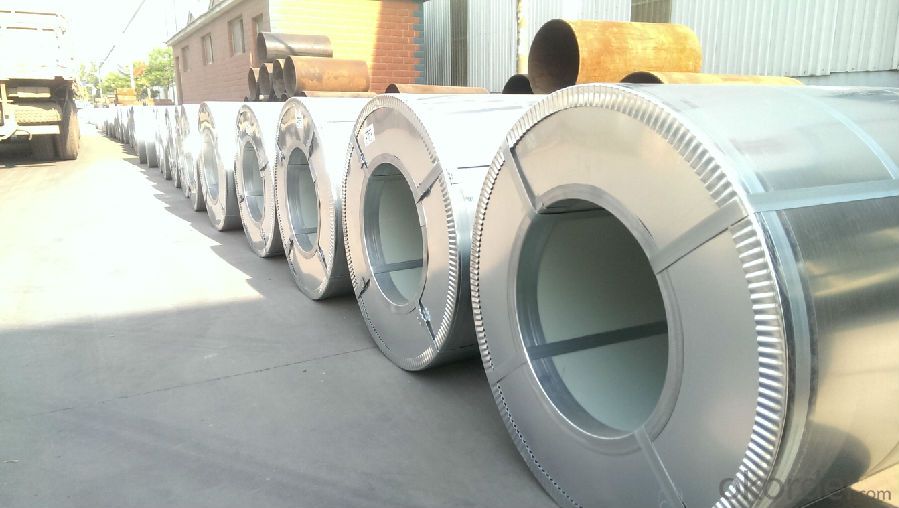
4. Hot Dipped Galvanized Steel Sheets in Coils Based on Full Hard Quality Specification
1)Based raw material: Hot rolled steel coils or Cold rolled steel coils
2) Thickness
3) Width
4)Coating mass
5) Spangle
6)Surface treatment
7)Coil inner diameter
5.FAQ of Hot Dipped Galvanized Steel Sheets in Coils Based on Full Hard Quality
We have organized several common questions for our clients,may help you sincerely:
①How about your company?
A world class manufacturer & supplier of castings forging in carbon steel and alloy steel,is one of the large-scale professional investment casting production bases in China,consisting of both casting foundry forging and machining factory. Annually more than 8000 tons Precision casting and forging parts are exported to markets in Europe,America and Japan. OEM casting and forging service available according to customer’s requirements.
②How to guarantee the quality of the products?
We have established the international advanced quality management system,every link from raw material to final product we have strict quality test;We resolutely put an end to unqualified products flowing into the market. At the same time, we will provide necessary follow-up service assurance.
③How is the packaging and delivery?
Exporting Package with the steel material cover and the delivery term is based on the project.
- Q: What are the challenges in coil slitting for narrow strip widths?
- Coil slitting for narrow strip widths presents a number of challenges. One key challenge is the need to maintain precision and accuracy throughout the slitting process. Even the smallest misalignment or deviation can result in significant defects or inconsistencies in the final product. Therefore, it is important to calibrate and adjust the slitting equipment carefully to ensure accurate cuts. Another challenge is the risk of material damage or deformation during slitting. Narrow strip widths are more susceptible to distortion, wrinkling, or edge cracking, especially if the material is not handled or supported properly. To minimize potential damage, it is necessary to feed the material smoothly through the slitting machine and control the tension effectively. In addition, handling and transporting slit coils can be challenging due to their narrow width. These coils are prone to bending, twisting, or telescoping, which can cause difficulties in stacking, storage, or transportation. To maintain the shape and integrity of the coils, proper packaging and handling techniques must be employed throughout the supply chain. Furthermore, narrow strip widths often require more frequent blade changes during slitting. This adds complexity and time to the setup and maintenance process, as the blades need to be carefully selected and replaced for optimal cutting results. Skilled technicians are crucial for efficiently and effectively handling these blade changes. Overall, while coil slitting for narrow strip widths offers cost savings and increased material utilization, it also comes with challenges that need to be addressed. These challenges include maintaining accuracy, preventing material damage, ensuring proper handling and transportation, and managing blade changes effectively. By understanding and addressing these challenges, manufacturers can optimize their coil slitting operations and produce high-quality narrow strip products.
- Q: I have a new stainless steel trash compactor under a butcher block counter. We refinished the countertop, but unfortunately the person who did it wasn't careful with the orbital sander and sanded the top edge of the stainless steel compactor door, ruining the finish. The sander marks are not deep - just surface scratches - but they are unsightly. Is there any way to restore the finish to the stainless steel without having to buy a new door?
- Scratches are difficult to remove. Most kitchen appliances, sinks, and counters have a polished finish with short directional polishing lines. Restoring a polished finish to its original appearance requires a professional such as a company that specializes in fabricating or polishing stainless steel. If the refrigerator or dishwasher door panel is replaceable, purchasing a new panel is normally more cost effective than professional refinishing. The homeowner may want to consider obtaining replacement panels with angel hair, distressed, swirl, or embossed finish. These finishes help to hide light scratching and can be obtained from companies that specialize in stainless steel finishes. Counters and appliance doors that are not easily removable must be refinished in place. When the counter is refinished, it may have long rather than short polishing lines. If a slightly different finish is acceptable and cost is a consideration, a homeowner can refinish the counter or appliance using a non-metallic abrasive pad such as a Scotch Brite? pad. This can be done by rubbing the surface with the pad using long uniform strokes in the same direction as the current polishing lines. This will not eliminate deep scratches. A professional may offer this finish as a less expensive option. The resulting finish is normally referred to as a hairline or long grain finish. Some appliance companies are starting to offer this finish.
- Q: i have a guitar with three nylon three steel strings. Am i able to replace the nylons with steel strings?
- earlier you circulate approximately any extensive alterations, take the guitar to a qualified technician and notice approximately having the strings, or action diminished nearer to the fretboard. this could take very numerous soreness off of his palms, because it feels like the guitar hasn't been set-up in any respect, or a minimum of superb. A neck adjustment, if mandatory, might additionally help this issue. If he continues to be experiencing finger soreness (he might might desire to undergo some), attempt a lighter gauge set of strings (steel). a good tech can help you there, too. Nylon strings are not going to paintings properly in any respect on a non-classical guitar; the parameters are in basic terms different adequate between the two certainly one of them to end not something greater suitable than to waste your money. the main uncomplicated issue I see on a conventional foundation is that guitars are offered and offered without suitable set-up. An experienced tech will examine the neck configuration; the bridge alignment; saddle top; venture end; nut clearance; and action on an acoustic guitar. There are much greater info on an electric powered. Please detect a music/guitar save that does this form of paintings on the premises. My concept is that the finished relatives will income. Cheers decrease back atcha!
- Q: im buying a sword and i dont know if i should buy a cold steel sword or a normal sword and that i can some how make that cold steel
- Cold Steel takes a billet (read piece of metal stock) in high carbon steel, usually 1060 which is pretty good, and then heats it up and pounds it into shape with a pre-made form. This is called forging. Their swords are not Folded (the traditional manner) they are Forged. This is different from taking a piece of 1060 steel and just grinding it down into shape. The forging process creates very strong steel (not as strong as folding) that is much stronger than a sword or knife made from grinding a piece of metal down into shape. Cold Steel's stuff is generally thicker, but they are practical and with enough practice you can wield it just like a thinner lighter sword. Their weapons are what you would call battle ready meaning you could feasibly take it into a sword fight and use it like its more traditionally crafted counter part. The only downfall is its weight and and the fact that it isn't as strong as a folded steel sword, but it would do very well.
- Q: You have two steel wool pads,one is cut up into little pieces, and the other is whole, and they are both submerged in water. 1.Which steel wool pad will rust quicker?2.How much faster will that pad rust? (estimate+explain the estimate)6.How could you make the steel wool pad rust faster?Please dont tell me to do my homework because I tried, but I bought the wrong type of steel wool
- How to make it rust faster ? Adding oxygen to the water - bubbling air through it. Raising the temperature should make the reaction go faster, but I believe it also reduces the amount of dissolved gas. Adding salt, or an ionic compound like an acid, will accelerate electrochemical corrosion. That usually requires a less active metal, like copper, in contact with the steel, but variations in the composition of the steel may be sufficient to promote corrosion.
- Q: I'm looking for the weight of different types of steel and haven't found anything helpful!!thank you
- Just know the type of steel ,its density. Density gives you weight per unit of volume. For example: The density of mild steel is approximately 7.85 g/cm^3 (0.284 lb/in^3) From above , you can say that 1 cm^3 of volume of mild steel have 7.85 gram weight.
- Q: hello, I am trying to figure out what wok to get and came across a website that offers many woks out of different materials. what is the best, or considered original (traditional)? I have a couple of cast iron pots and pans - too heavy, so I am assuming it will take some time for a cast iron wok to heat up. what about carbon steel and stainless steel? Thanks
- Best Wok To Buy
- Q: What type of metal is T10 tool steel?
- Carbon Tool Steel usually in the form of forged bar stock. Steel Grades for tool steel can be any of the following (depending on the application) T10/1.1645 SK3/SK4/W1A-91/2/ TC105/y10/1880/BW1B T10A/1.1545/y10A/1880 Standards are published by: DIN, JIS, ASTM, AISI, BS, SS, ISO, TOCT, GB Doug
- Q: I completed the missions in broken steel like: the one of the rangers, the one of vault 101, the one of the enclave, and several others.are there any more INTERESTING missions?
- Um The ranger mission is not broken steel and Vault 101 isn't either. After completing Broken steel you should go to this guy called griffon in underworld and talk to him about him getting aqua pura(Or aqua cura) Then after he brings you to 2 other quests from this guy called bigsley. Thats all I could find thats interesting. You should go to a place called oasis. Its at the very top of the map, Small quest up there but really cool. Go look it up on youtube if you want. You could also go to paradise falls and kill all the slavers and save the slaves, That gets you a quest and a achievement if you free them. Also the guard at paradise has a quest for you. Also has a achievement, The quest is called strictly business, Its more of a evil karma quest though. if you don't want to be evil just take the cool weapon he gives you then kill him :P, all i can think of right now. if you have a hard time finding places for stuff, Youtube might help. or getting the explorer perk.
- Q: I want to purchase a set of knives made of carbon steel and want to be able to store them on a magnetic knife strip for handy access, I just wasn't sure if this alloy would stick to a magnet????Thanks
- Carbon steel knives will stick to a magnet. Stainless steel may not.
Send your message to us
Hot Dipped Galvanized Steel Sheets in Coils Based on Full Hard Quality
- Loading Port:
- Shanghai
- Payment Terms:
- TT OR LC
- Min Order Qty:
- 100 m.t.
- Supply Capability:
- 10000 m.t./month
OKorder Service Pledge
OKorder Financial Service
Similar products
Hot products
Hot Searches
Related keywords
